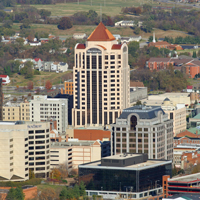
 |
|
 |
Summer Safety It's possible to enjoy a sizzling-hot summer without getting burned! By following these quick and simple steps, we can all keep summer activities fun and fire-safe. Grilling Keep barbecue grills far away from anything that can burn - your home, cars, dry vegetation, etc. Stay with the grill when lit, and keep children and pets well away from the area. When barbecuing, protect yourself by wearing a heavy apron and an oven mitt that fits over your forearm. If you get burned, run cool water over the burn for 10 to 15 minutes. If you receive a serious burn, seek medical attention promptly. Barbecue grills must never be used inside the home because, in addition to the fire hazard of indoor grilling, the grill can easily cause carbon monoxide poisoning. If lightning appears while you're grilling, seek shelter and wait for the storm to pass. Use only a limited amount of starter fluid (never gasoline) before lighting a charcoal grill. If the fire is too slow, rekindle with dry kindling and add more charcoal if necessary. After use, soak the coals with water before you discard them and leave the grill away from the house until completely cool. For gas grills, always store the gas cylinder outside -- away from structures - and turn off the valves when not in use. Fireworks The safest way to enjoy fireworks is at an outdoor public display put on by professionals. Fireworks are designed to burn and explode, and are a leading cause of injuries in the U.S. Every year, fireworks used by amateurs cause thousands of injuries serious enough to require emergency room treatment. Children between the ages of 10 and 14 are at greatest risk of injury from fireworks. Stay safe by always leaving fireworks to professionals! Camping  Pitch your flame-retardant tent well away from your campfire. Pitch your flame-retardant tent well away from your campfire.  Only use flashlights or battery-powered lanterns inside the tent or other close space. Only use flashlights or battery-powered lanterns inside the tent or other close space.  Build your campfire away from your tent, clearing away all vegetation and digging a pit surrounded by rocks. Build your campfire away from your tent, clearing away all vegetation and digging a pit surrounded by rocks.  Look for signs of potential fire hazards in national forests and campgrounds, and always obey park service regulations. Look for signs of potential fire hazards in national forests and campgrounds, and always obey park service regulations.  Pour water over or cover the fire with dirt before going to sleep or leaving the campsite. Pour water over or cover the fire with dirt before going to sleep or leaving the campsite. Water Safety  Only swim in approved areas. Only swim in approved areas.  Supervise children near water at all times and make sure that children learn to swim. Supervise children near water at all times and make sure that children learn to swim.  Ask a lifeguard about the depth of the water before jumping in. Ask a lifeguard about the depth of the water before jumping in.  Always wear a U.S. Coast Guard-approved PFD (personal floatation device) when boating, jet-skiing, tubing or water-skiing. Air-filled swimming aids like water wings or inner tubes are not substitutes for approved PFDs. An adult should always supervise children using these devices. Always wear a U.S. Coast Guard-approved PFD (personal floatation device) when boating, jet-skiing, tubing or water-skiing. Air-filled swimming aids like water wings or inner tubes are not substitutes for approved PFDs. An adult should always supervise children using these devices.  Be sure to extinguish all smoking materials and shut down motors, fans and heating devices before fueling a boat. In case of a spill, wipe up fuel immediately and check the bilge for fuel leakage and odors. After fueling and before starting the boat's motor, ventilate with the blower for at least four minutes. Be sure to extinguish all smoking materials and shut down motors, fans and heating devices before fueling a boat. In case of a spill, wipe up fuel immediately and check the bilge for fuel leakage and odors. After fueling and before starting the boat's motor, ventilate with the blower for at least four minutes. |
|
||||||||
| City of Roanoke Virginia Office of Emergency Management 713 3rd Street SW, Roanoke, VA, 24016, 540-853-2426 | ||||||||||
| ©2025 FastHealth Corporation Terms Privacy | US Patent Numbers 7,720,998 B2, 7,836,207 |